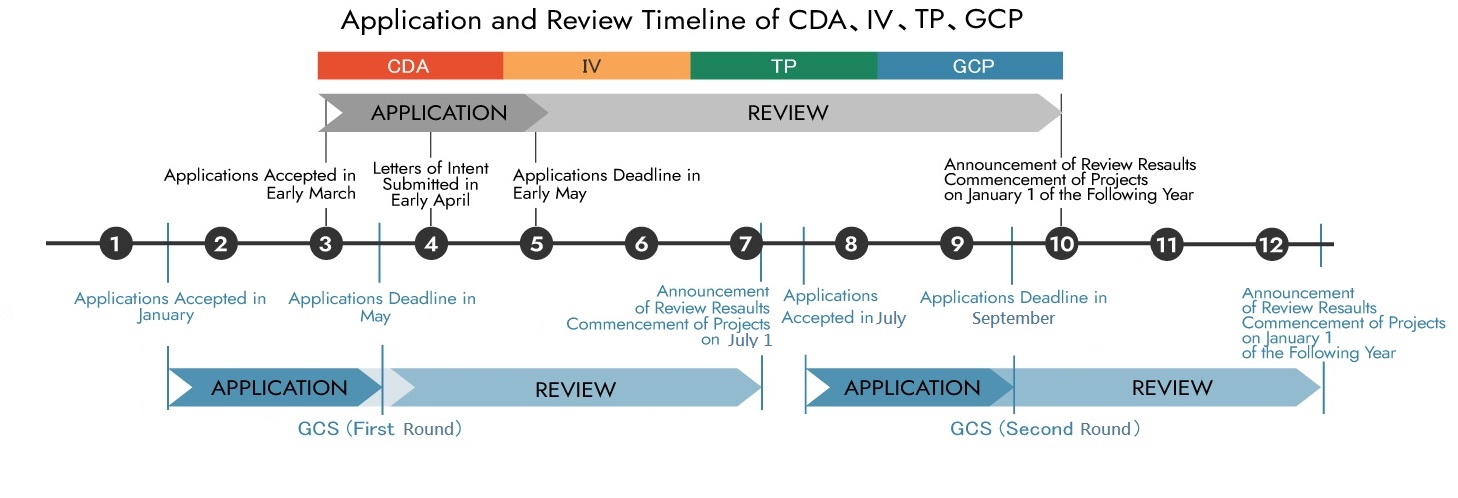
The Academia Sinica Career Development Award (CDA) has been established to recruit and encourage young scholars with excellent research records and outstanding scholarly potential to engage in innovative and internationally-competitive research projects, thereby cultivating and promoting world-class academic talent. This award is made on a referral basis; direct applications are not accepted. For the procedure, referring units shall follow the “Guidelines for the Academia Sinica Career Development Award.”
For the “2027 Career Development Award,” referred candidates are required to submit a Letter of Intent before March 31, 2026, and to apply online by April 30 (by 17:00 Taiwan Time). Late applications are not considered. The instructions are as follows.

Funding Opportunity Announcement


|
Project Proposal


|
Letter of Referral

|
Review Criteria

|
Review Information and Timeline

|
Applications will be accepted starting in early March. Applicants must submit a Letter of Intent (including a list of recommended reviewers) in early April. The application deadline is in early May. The first round of review takes place from June to August. The second round of review takes place from August to September. Applicants will receive the final results of the review in late October, and selected projects will commence in January of the following year.
The review for projects in the Division of Mathematics and Physical Sciences is divided into four sub-fields: Physical Sciences, Astronomy, Earth Sciences, and Mathematics, Computer Science and Statistical Science.
The review process consists of two stages:
The review for projects in the Division of Life Sciences consists of two stages.
The review for projects in the Division of the Humanities and Social Sciences consists of three stages.
In any of the circumstances listed below, a panelist or reviewer must decline to review an application.
To ensure the confidentiality of the review process, Academia Sinica will provide the final results of the review to the applicants. Each panelist or reviewer agrees not to disclose to others information associated with the review, including discussions and results arising from the review meetings, without prior authorization by Academia Sinica.